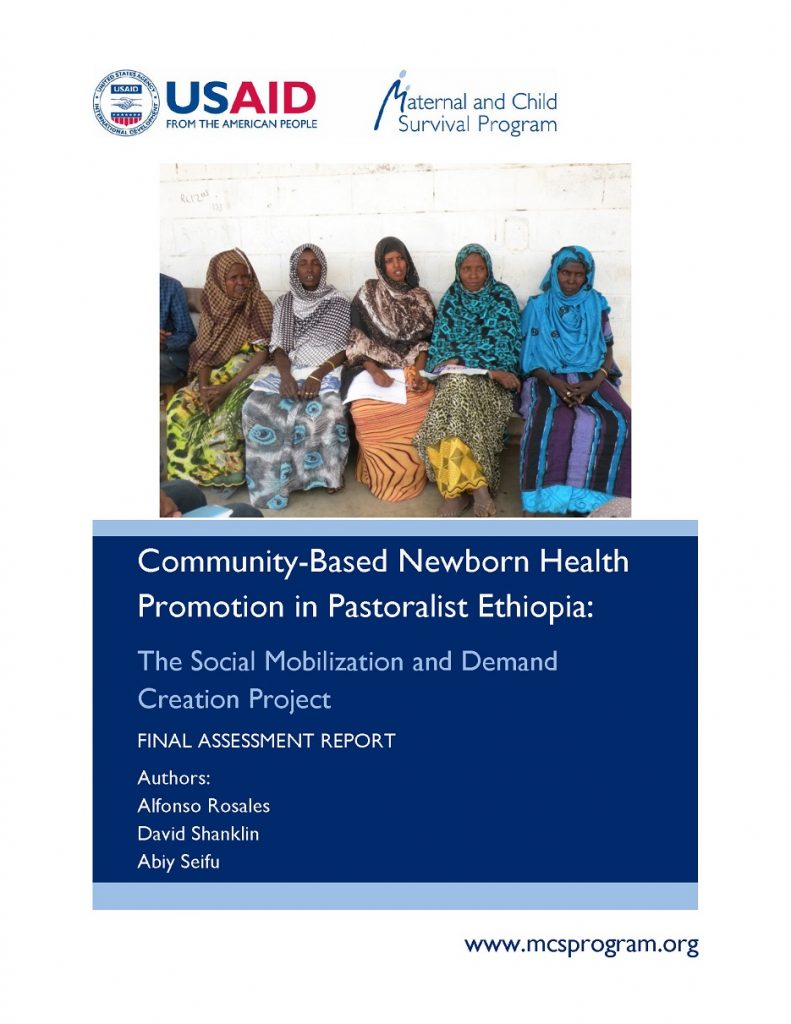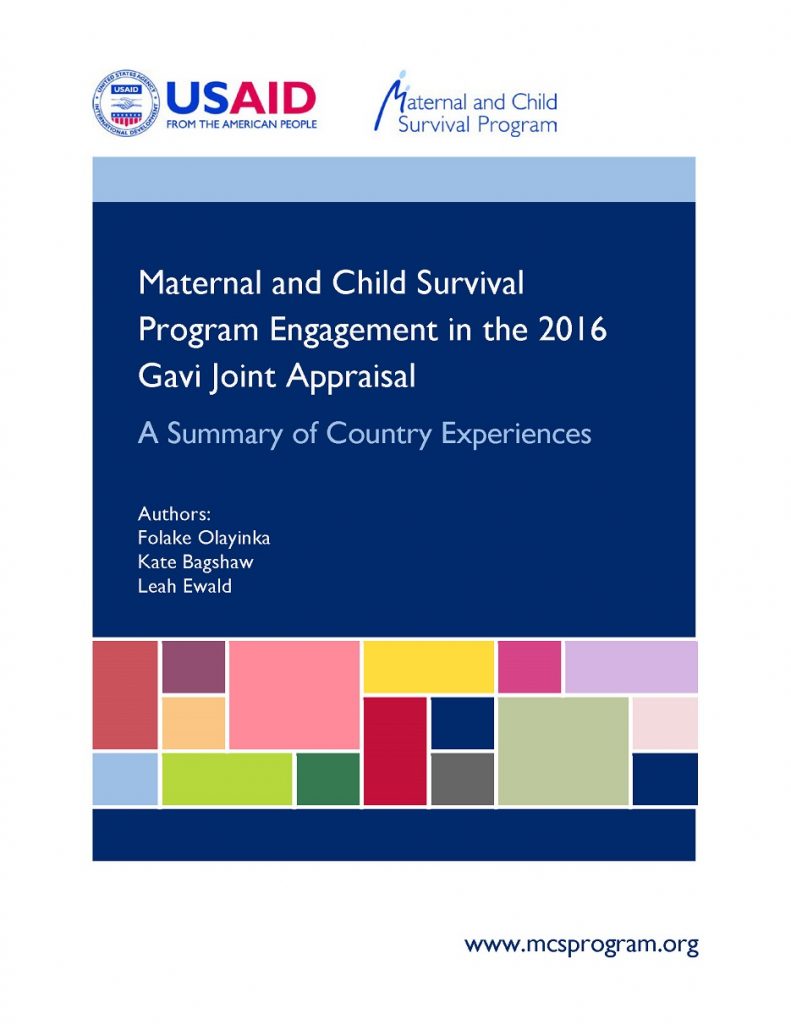
The Gavi Alliance (Gavi) joint appraisal (JA) is an annual, in-country multi-stakeholder review of the implementation progress and performance of Gavi’s support for new and under-used vaccines and health system strengthening support, and of its contribution to improved immunization outcomes. Before the introduction of this process in 2015, in order for countries to renew funding […]
Read More…
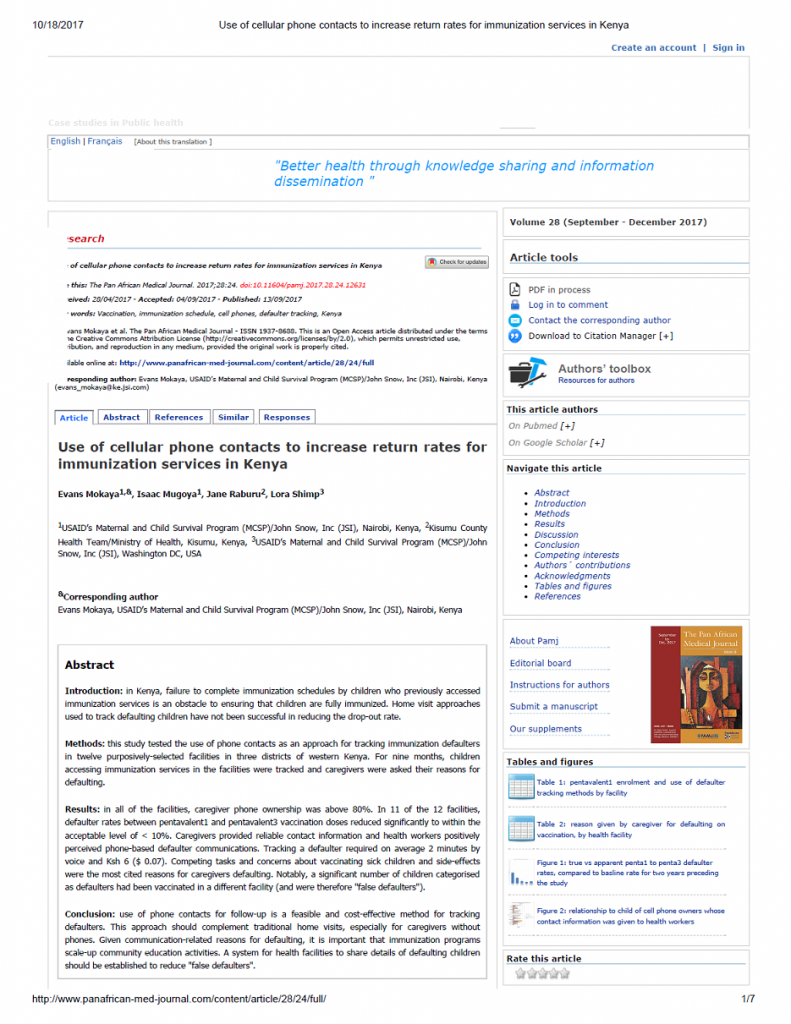
In Kenya, failure to complete immunization schedules by children who previously accessed immunization services is an obstacle to ensuring that children are fully immunized. Home visit approaches used to track defaulting children have not been successful in reducing the drop-out rate. This study tested the use of phone contacts as an approach for tracking immunization defaulters in […]
Read More…
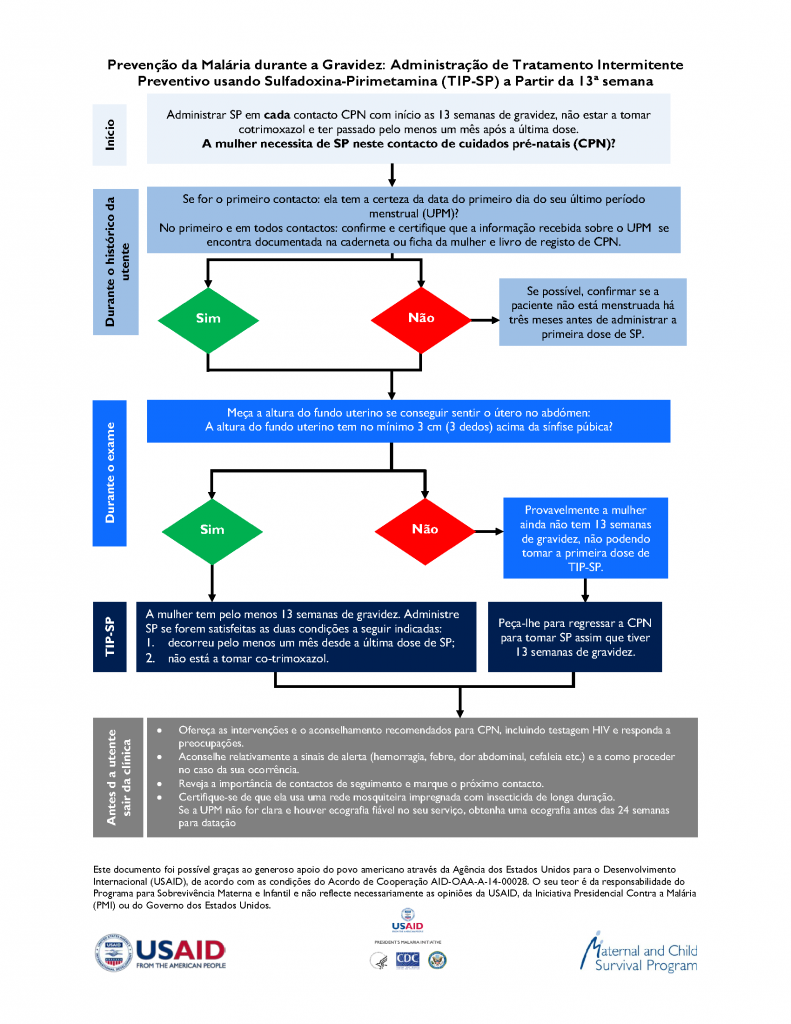
To promote better understanding of and adherence to the 2012 WHO IPTp-SP recommendations, MCSP developed the Toolkit to Improve Early and Sustained IPTp Uptake. The Toolkit was developed by MCSP’s Maternal Health and Malaria teams, in collaboration with the President’s Malaria Initiative (PMI). It consists of a job aid (poster); a technical summary; a PowerPoint […]
Read More…
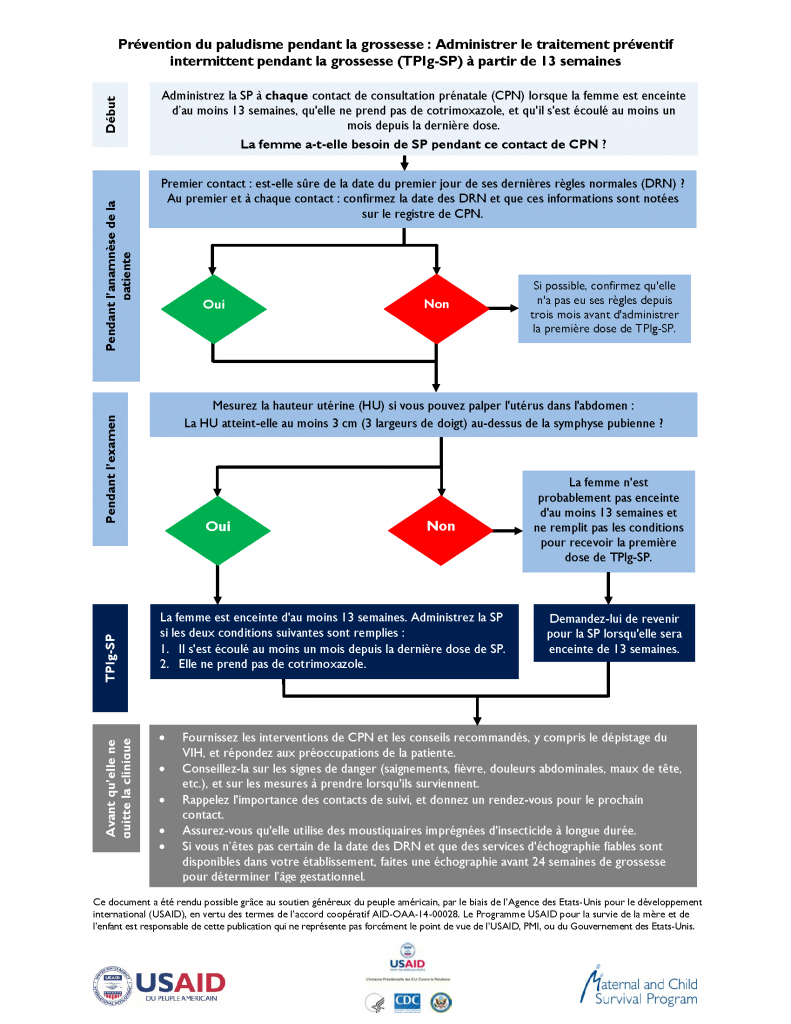
To promote better understanding of and adherence to the 2012 WHO IPTp-SP recommendations, MCSP developed the Toolkit to Improve Early and Sustained IPTp Uptake. The Toolkit was developed by MCSP’s Maternal Health and Malaria teams, in collaboration with the President’s Malaria Initiative (PMI). It consists of a job aid (poster); a technical summary; a PowerPoint […]
Read More…
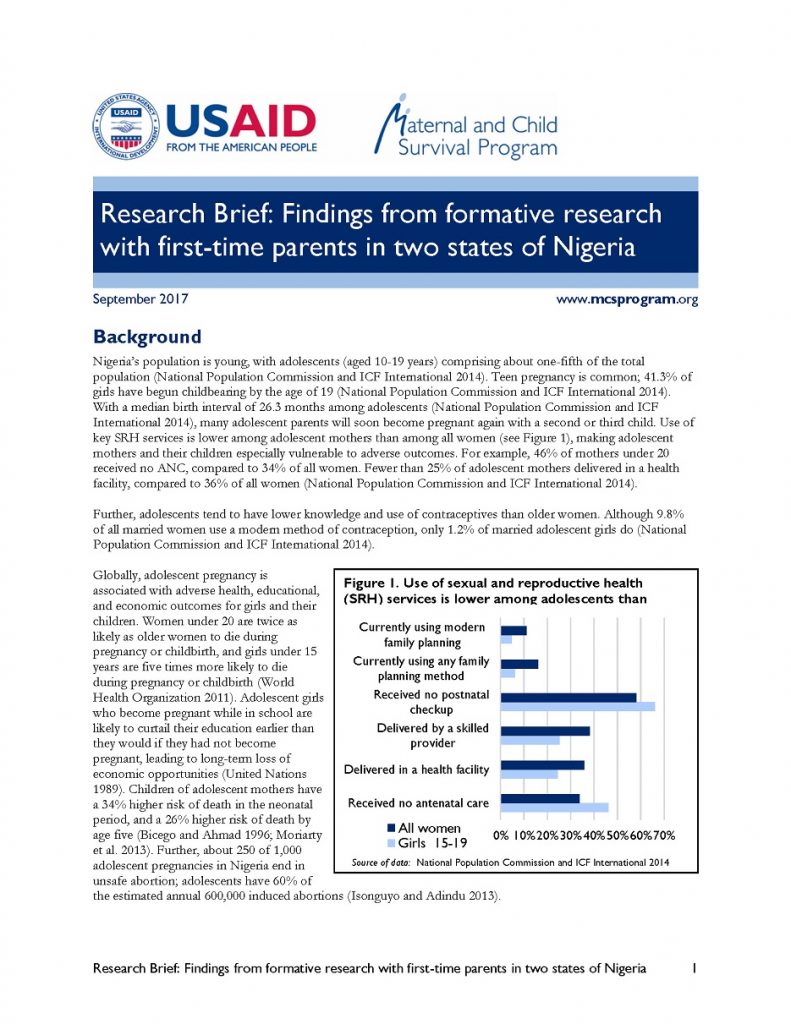
This brief explains MCSP’s implementation of an activity in Kogi and Ebonyi states in Nigeria to address the needs of pregnant and parenting adolescents, with the ultimate objective of increasing use of ANC, safe delivery, and PPFP services to delay a subsequent pregnancy. To inform planning for this intervention, MCSP conducted formative research to understand the SRH needs […]
Read More…
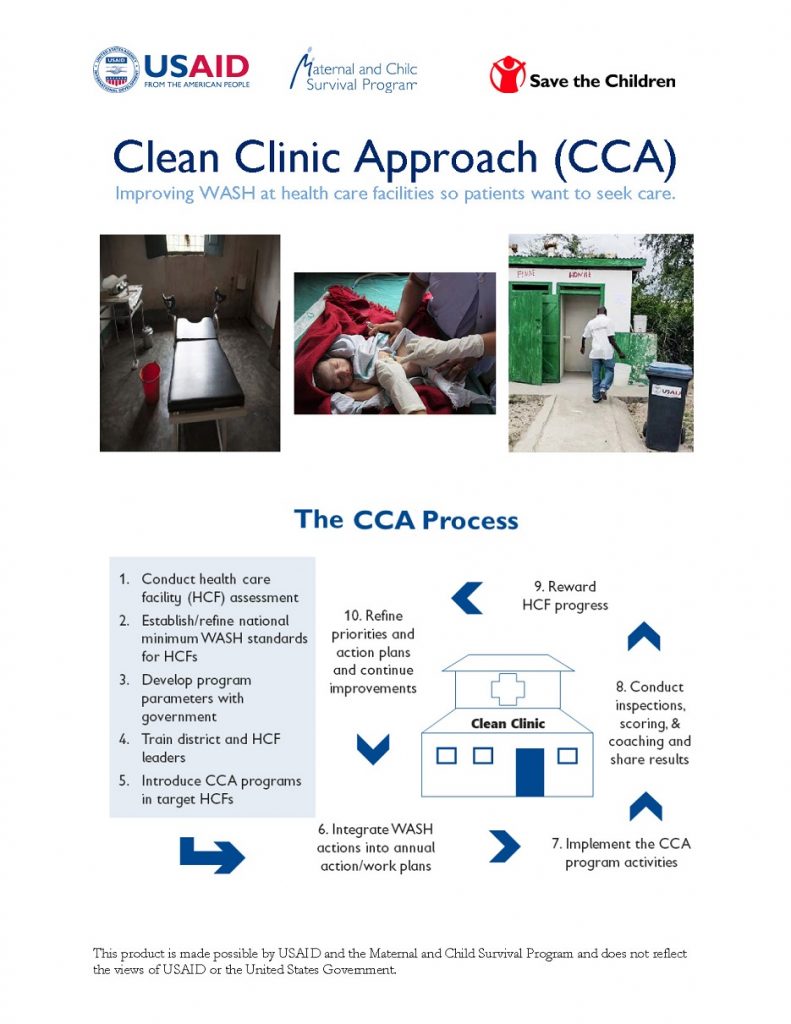
Unsafe water, sanitation and hygiene (WASH) conditions and practices discourage people from seeking care at health facilities. This one-pager visually explains MCSP’s Clean Clinic Approach, a programmatic tool that encourages health facilities to establish WASH goals and make incremental improvements towards the end goal of achieving “Clean Clinic” status, as defined with the national Ministry […]
Read More…
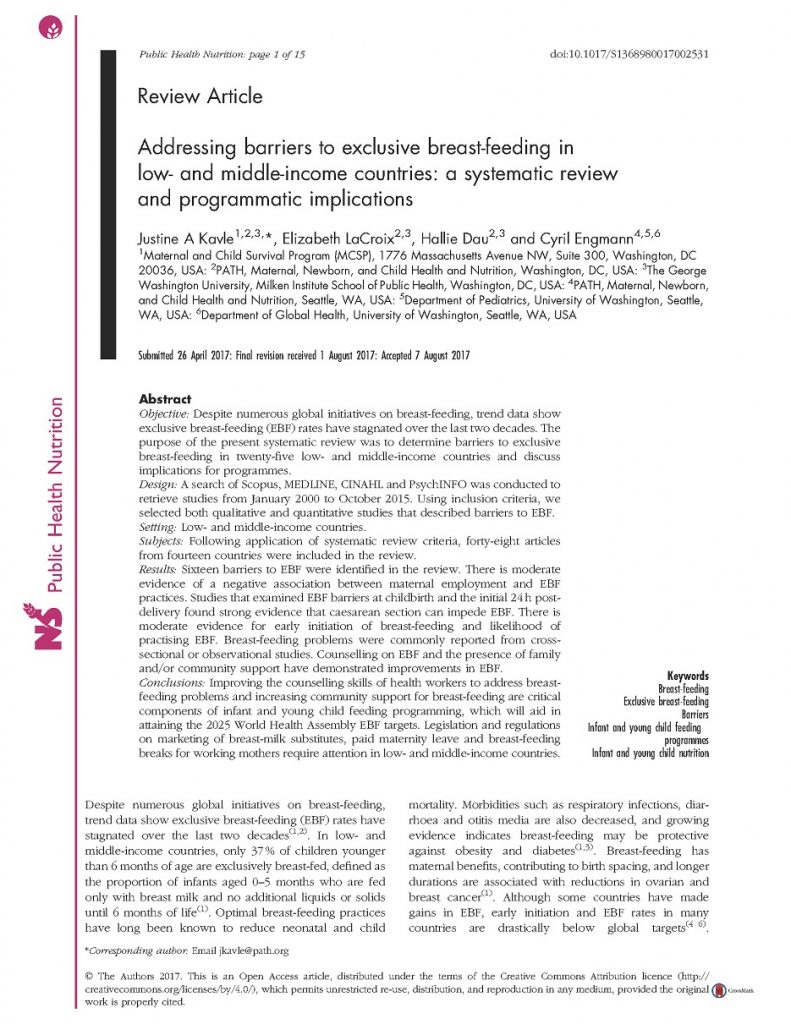
Despite numerous global initiatives on breast-feeding, trend data show exclusive breast-feeding (EBF) rates have stagnated over the last two decades. The purpose of this systematic review was to determine barriers to exclusive breast-feeding in twenty-five low- and middle-income countries and discuss implications for programmes. To read the full, open access article in Public Health Nutrition, click here. […]
Read More…
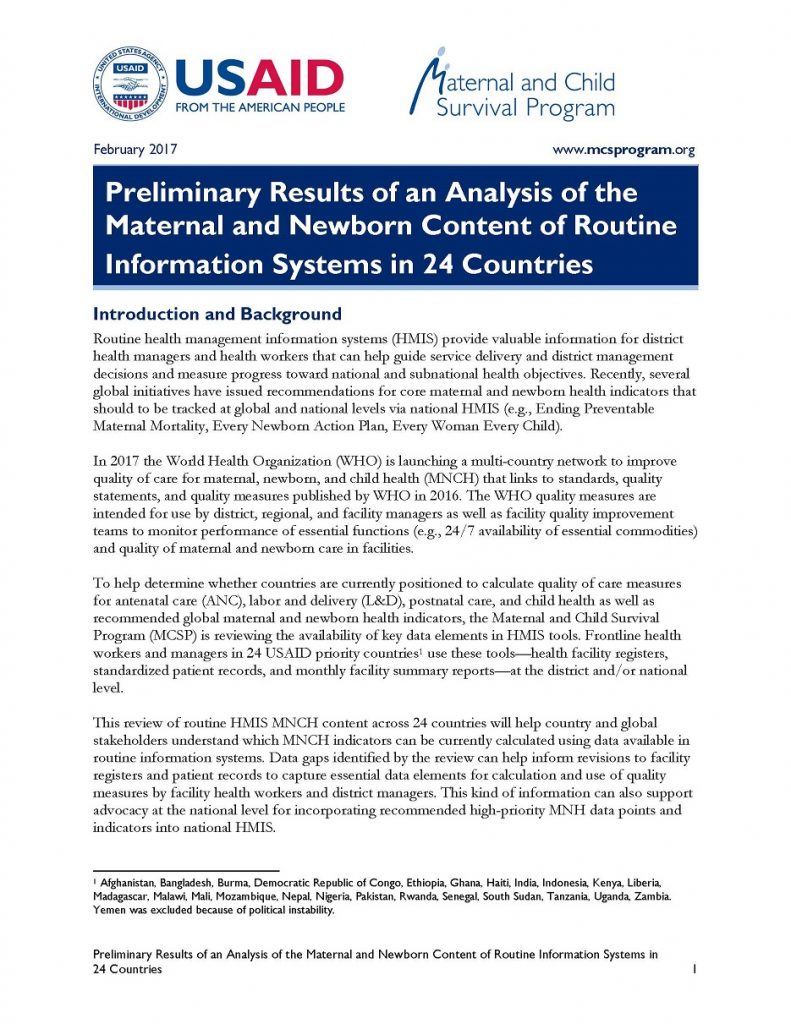
This review of routine Health Management Information Systems (HMIS) maternal, newborn and child health (MNCH) content across 24 countries can help country and global stakeholders understand which MNCH indicators can be currently calculated using data available in routine information systems. Data gaps identified by the review can help inform revisions to facility registers (and patient […]
Read More…
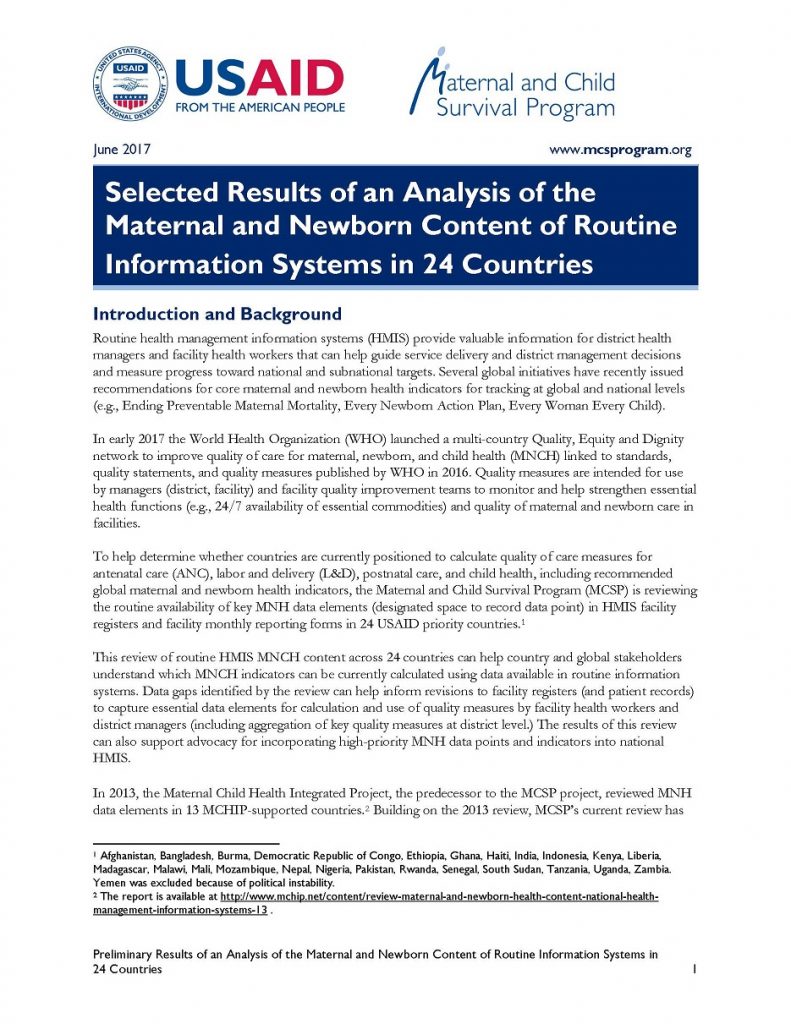
This review of routine Health Management Information Systems (HMIS) maternal, newborn and child health (MNCH) content across 24 countries can help country and global stakeholders understand which MNCH indicators can be currently calculated using data available in routine information systems. Data gaps identified by the review can help inform revisions to facility registers (and patient […]
Read More…







